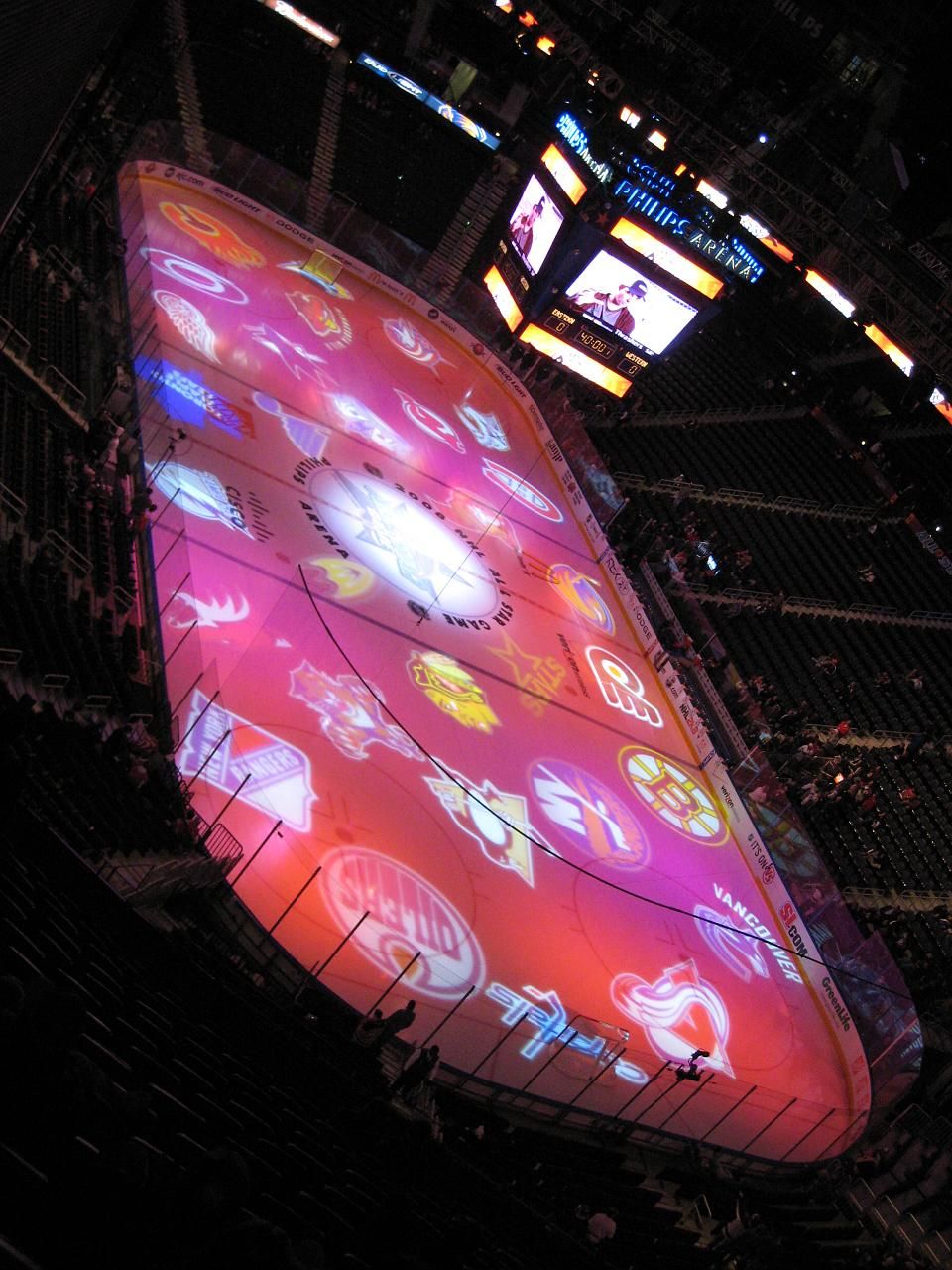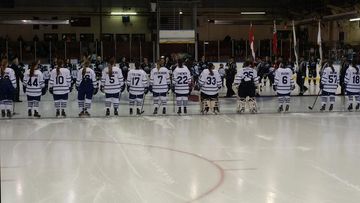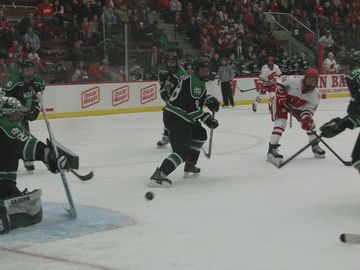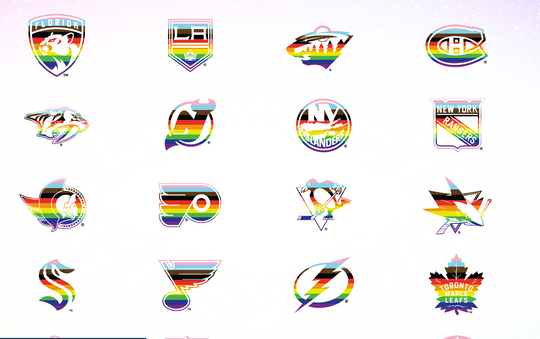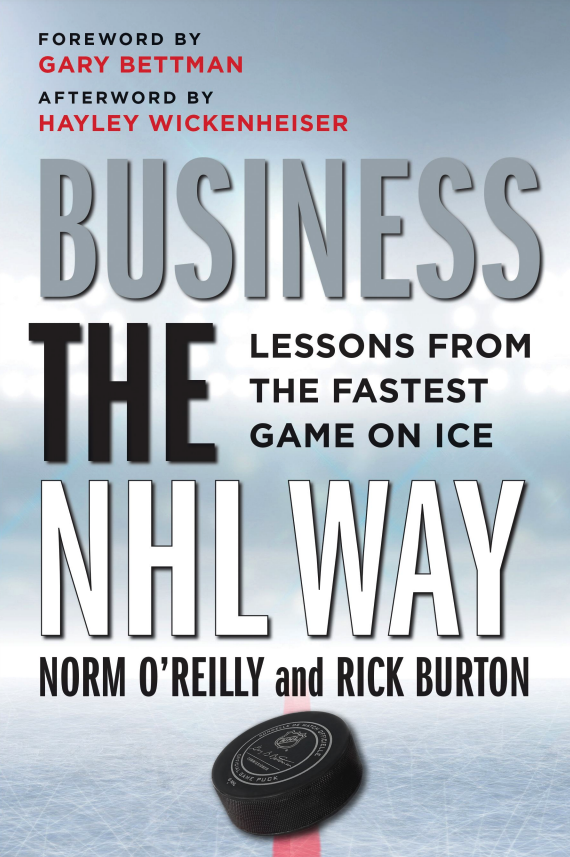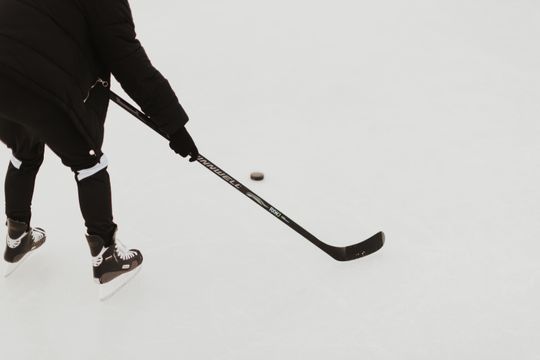There are times when, as a woman, it’s tough to be an NHL fan. There are so many signals that you don’t quite fit the mold; that you’re not the preferred demographic; that you are, by definition, an anomaly to those who make the decisions about what the league will be like. It begins with ice girls and carries through all aspects of advertising, marketing, and merchandising.
But the biggest tell about the league’s attitude towards women is their handling of any accusations of sexual and domestic violence against players. In this, the league is just as tone-deaf as the rest of society—and arguably more so. For example, it’s hard to imagine a prominent corporation not responding to accusations of a rape committed by one of its top executives.
I am a woman, and a survivor of both domestic violence and sexual assault, and it’s in these cases where there’s an enormous disconnect between what I know these things to be and what the NHL and sporting culture assumes they are.
This disconnect showed when the NHL did nothing in response to Semyon Varlamov’s arrest for assaulting his girlfriend. It showed when they accepted that Mike Ribeiro was accused of incredibly grotesque acts towards a young girl in his employ, without the slightest qualm or objection.
When Slava Voynov was investigated for and eventually charged with domestic violence, the league suspended him immediately…which was at least a reaction, though not necessarily the most productive one. Even then, his team, the Los Angeles Kings, did everything possible to get around that suspension in the name of supporting a teammate. Nothing was done to support the victim.
This past summer, when Patrick Kane was accused of rape, the league once again defaulted to doing nothing. One step forward, two steps back. The NHL’s leadership void left space for the typical responses to rape accusations in our society—victim-blaming, calls of false accusations, assertions that an NHL star was being railroaded. Things got vicious for a number of women who had the temerity to assume that the accusations were not false.
In the midst of the drama, I temporarily locked my own Twitter account, despite the fact that this made it exponentially harder for me to publicize my professional work as a hockey writer. (I write about goaltending for InGoal Magazine and run my own site, Puckology.) I made my account private because I had to work myself up every day to deal with it. I had to find some kind of insulation or I was going to have to quit. I could have quit. I could have walked away from the NHL altogether—but I chose not to.
I can’t say that my decision to stay was due to some desire to fight the good fight or pursue some noble purpose. That is in there, to an extent, but it’s not the whole reason. The truth is that I chose to stick around in large part because I love to watch the game, and the NHL provides some of the best hockey on earth…and because I can get paid to write about the NHL.
That fundamental ambivalence lies in many of the choices that women are forced to make about both their economic and social lives. The heart of modern feminism lies in recognizing and interrogating the implications of participating in a fundamentally misogynist system.
Hockey isn’t just a business. We bring our attitudes and beliefs to the rink, and we affect the lives of others while we are there. When the league fails to respond to these accusations, it’s possible to use the league as an opportunity to publicly insist that sexual violence is normal, natural, and not a problem.
When Patrick Kane stepped onto the ice on the opening day of Blackhawks training camp to rousing cheers, those cheers sent a message to everyone. The people who cheered knew the situation, but they made a conscious choice to cheer for a man because he had been accused of rape.
Not in spite of that fact. Because of it.
By letting this player represent the league and the team on opening night, the NHL allowed and actually encouraged people to publicly demonstrate their contempt for rape victims. To far too many people, the crime is that a man was accused of rape. The crime is reporting your rape. The league turned Patrick Kane into the victim and hero—because he was accused, and not in spite of it.
Silence is not disapproval. Silence allows rape, sexual assault, and domestic violence to go unchecked. It makes it seem normal, natural, and justified.
This is the message that the NHL has sent to young men in locker rooms around the world: not only will you not be punished, but there is nothing to be punished for. It is not even worth a reaction.
These factors operate independently of the facts of the case. It doesn’t matter whether Kane is adjudicated or not. The accusation alone allows for incidents of extraordinary callousness to occur, within this specific context, in this specific moment, all over the country. Through their continued inaction, the league reinforces the idea that rape is a joke, a taunt, an auxiliary to a hockey game. A way to put young girls in their place.
Rape culture deems that women’s bodies are public property and that women’s agency is inherently vile and corrupt. The league has given this culture full authority to continue as part and parcel of its normal daily business.
How is it possible to choose this?
Sports fans identify with their team and their sport. They identify so strongly that there is literal confusion in the brain about where the self ends and the team begins. A win by a favorite team feels like an individual accomplishment, while a loss feels like a personal defeat. When we cheer for our team, in a very real sense, we are cheering for ourselves.
That emotional connection is part of what makes being a fan so satisfying. It’s why we do it. And it’s why these questions about the culpability of Patrick Kane, the Chicago Blackhawks, and even the National Hockey League become so personal and the backlash becomes so vicious.
When you cheer for a team, you are opening yourself up to that identity, that declaration of unity. How do you freely open yourself to a league that is objectively hostile to the idea of keeping you safe while enjoying their product? How do you become one with people who chant “no means yes” under any circumstances—but especially in the context of supporting the athletic accomplishments of an actual human who is accused of doing a heinous thing?
How do you choose to be part of this?
I don’t have any good answers to this question.
Women have tried to negotiate the morass of patriarchy for millennia—what a friend of mine once called the “phallocracy.” Faced with the choice between getting nothing and accepting the rules, one finds a way to live within the rules. One participates, even when doing so does damage.
We do what we can to make our lives livable. We make compromises because we have to, not because we necessarily embrace the premises under which our lives are constrained.
We became chatelaines and nurses and sex workers and teachers. We became mistresses to slave owners. We put aside dreams of being doctors and lawyers and artists and poets. We accepted seclusion. We took on the role of nurturer, partly because it was the role that was open to us, not necessarily because it was a role that always fit. Certainly, women have always undermined and resisted, but history is full of the stories of women who did the best they could with the resources that were available to them.
This struggle continues today. Women, and especially women of color, have fewer economic resources with which to make their way in a free market society than men, and especially white men. We make do with what we have and we accept what we must, even when it comes to things that we would prefer not to be forced to accept. This lack of choice for women is its own form of coercion.
We are harmed by this. We are harmed by the free market ideology that tells us that any form of participation is always free, always voluntary, always a choice between many equally good choices. Even as our options are limited and constrained, our acceptance of the terms—this or nothing—is used against us. If you don’t like it, don’t do it. If you do it, then it must not be harming you.
That’s a patently false assumption, of course, and an insidious one. It is not true that we have a free and unfettered choice to participate in all economic and social activities. And it is not true that our willingness to stick around means that we freely accept the premises under which we make those choices.
It means that, quite often, that we are stuck between a rock and a hard place: that we live in a system that requires us to choose between different forms of harm.
All of this—the encouragement of rape culture, the transformation of a perpetrator of rape into a hero, the economic and structural constraints on women’s agency—is harmful. My participation does me harm. I am daily and actively harmed by this situation; while at the same time, my mere existence within the circle of the NHL is taken as a sign of enthusiastic consent to the entirety of the structure.
But—and here’s where it gets particularly tricky for me—non-participation would also harm me. I have to balance those two realities. To some extent (an extent that I don’t quite have a handle on yet), I have to take on and absorb the harm that participation causes me, because it matters to me to have this opportunity. It matters to me on a personal level, because I want to do what I get paid to do, and I also want to get paid to do it.
But it also matters to me that there should be female voices talking about the sport with authority. There are still too few female voices found in the venues where everyone can hear. At least one out of every three NHL fans—at least—is either a woman or a girl. This has been true for a decade. Why aren’t at least one of every three broadcasters and sportswriters women?
If I go, who will take my place?
Still, my motivation is not entirely a noble sacrifice. I do get paid to write about goaltending, and I find that helpful in my life. It’s not a huge amount of money, but I spend it just like I spend the rest of my money. It is useful to have that extra income. It also gives me pride to be recognized as knowledgeable. I am proud to work with the people at InGoal, who I believe is the smartest group of people writing about goaltending in the world. I am proud to be among them.
Moreover, I enjoy it. I enjoy writing about the position. I enjoy watching and learning and thinking about it.
And if I want to get paid to do this thing that I love to do, I have to write about, watch, and to some extent, promote the National Hockey League, despite the harm that it causes me to do so.
If I want to do this professionally, I have to take the opportunities that come up and make the most of them. I have to make peace, somehow, with the fact that writing about goalies in the NHL will put me in the position of writing about on-ice things without talking about off-ice things—and there are multiple issues, even when those off-ice things are actually more important in the grand scheme of things.
I made this choice while simultaneously understanding two basic facts: first, that it would tax my strength; and second, that I might eventually have to give it up. There are costs to both sides of the equation.
I’ve been given a choice that most people don’t have. The chance to do this job and to be good at it is an incredible gift in my life and I want to meet that challenge. But if I have to, I can choose to walk away. Not everyone can say that.
I can do the job and get what I can out of it. I might even be able to do my part for change. Or I can walk away, poorer and less visible, and avoid the internal conflict. That’s far less than a free and unfettered voluntary association. It is far less than enthusiastic support for the system that forces me to choose between two kinds of harm.
But it’s a choice that women have been making for thousands of years. What do I gain by participating? What do I lose? Does my participation uphold the system or crack it open? Can I live with that?
This is such a personal choice. Another person will have a different internal calculus and may make different choices. And in the end, I have no advice or recommendations to give anyone. The choice is so personal, so individual, that I have my own answer; but I can’t provide answers for anyone else.
(Photo credit: Dave Matos/Flickr)
